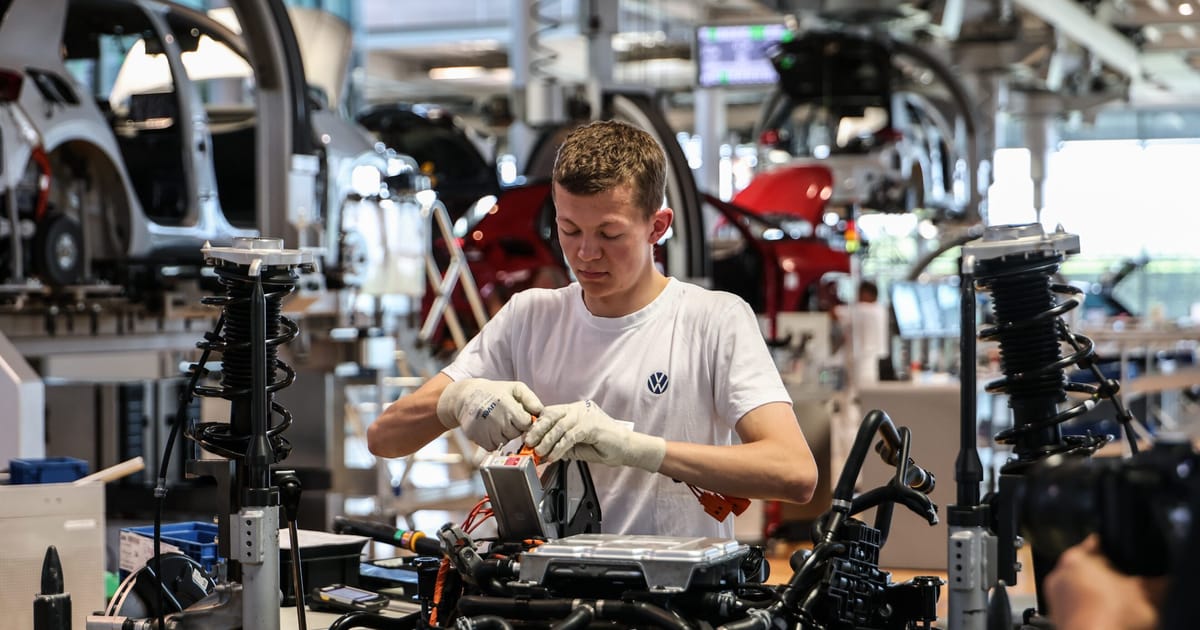

In a notable display of regional cooperation, key European leaders are coming together with a vision to bolster competitiveness while navigating the complexities of international trade. The focus is on Italy, France, and Germany, as their leaders set forth a plan aimed at enhancing the European Union’s economic landscape amidst looming trade challenges. This initiative is characterized by a calm yet determined approach towards aligning economic objectives to better face global market demands and uncertainties arising from trade negotiations with the United States.
Italy’s Prime Minister Giorgia Meloni, French President Emmanuel Macron, and Germany’s political leader Friedrich Merz are spearheading these efforts. The collaborative endeavor involves drafting a meticulously detailed letter addressed to the European Commission, outlining a series of objectives to propel the automotive sector and beyond into a new era of competitiveness. This proactive move underscores a shared commitment to fortifying the EU’s market position on the global stage, even as complex trade discussions are underway.
The context of these developments is intertwined with high-stakes trade negotiations with the United States, led by former President Donald Trump, whose administration is known for its assertive trade policies. As the EU faces the prospect of reinstating significant tariffs on its exports—including a potential 50% tariff—European leaders find themselves in an urgent race against time to secure a favorable trade deal. The negotiations, which have continued into the weekend, revolve around 15 to 18 key agreements, aimed at harmonizing transatlantic economic interests.
U.S. Treasury Secretary Scott Bessent has acknowledged the critical nature of these discussions, which hold the potential to reshape cross-Atlantic trade dynamics significantly. Compounding the pressure, Trump has issued a stern warning, indicating the possibility of imposing tariffs up to 70% on certain imports, a scenario that has fueled intensive political and diplomatic endeavors to avert economic disruption.
The ongoing trade discussions exemplify the intricate balance of diplomacy and economic strategy, as the EU navigates both internal and external challenges. The collaboration among Italy, France, and Germany reflects a mindful acknowledgment of the complexities in fostering economic resilience. By pooling resources and strategic vision, these nations are not only addressing immediate economic threats but also laying the foundation for long-term growth and stability.
Through this lens, the European leaders’ competitiveness push can be perceived as more than just a reactive measure; it is a thoughtful step toward creating an adaptable, forward-thinking economy. Such efforts are marked by a harmonious blend of shared objectives and flexible strategies, fostering an environment conducive to innovation and sustained prosperity.
As the deadline for trade agreements with the U.S. approaches, the mood within European corridors remains one of cautious optimism. Leaders are aware of the critical junctures ahead but remain resolute in their pursuit of agreements that will not only withstand immediate pressures but also enhance the continent’s standing in an ever-evolving global economy.
This strategic initiative by European leaders demonstrates a commitment to ensuring that Europe continues to thrive through responsive economic measures and collaborative efforts. Whether through securing pivotal trade deals or enhancing competitiveness from within, the dedication to stability and growth remains a guiding force in these dynamic times.
Source: {link}
